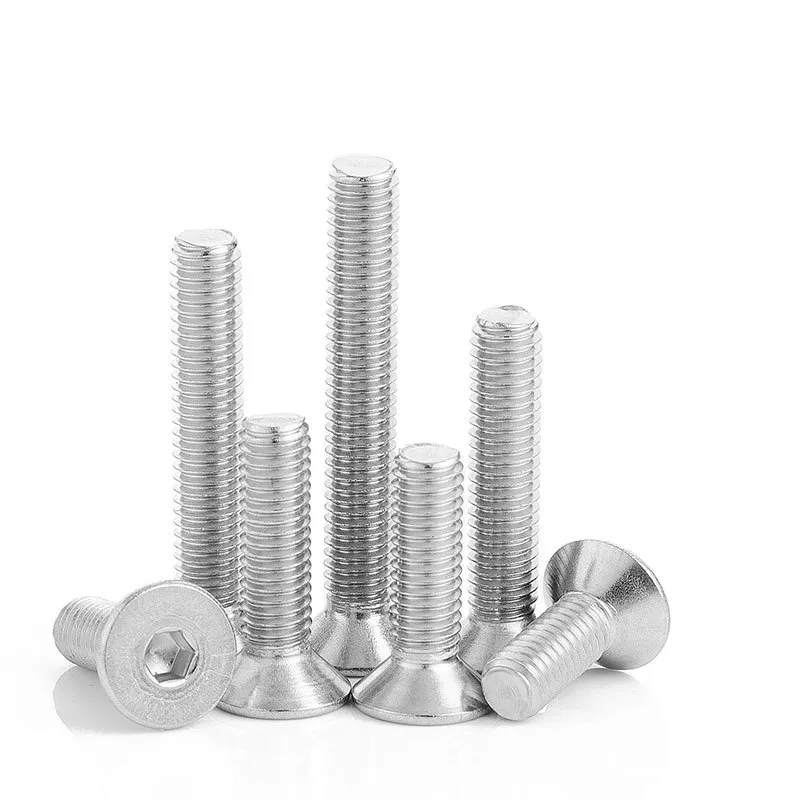

thin steel washers
Nov . 13, 2024 08:30 Back to list
thin steel washers
The Role and Importance of Thin Steel Washers in Various Applications
Thin steel washers are often overlooked components in the realm of engineering and manufacturing, yet they play a crucial role in ensuring the reliability and longevity of assembled equipment. These small, disc-shaped pieces of metal are typically placed between a fastening device, such as a bolt or nut, and the surface of an object. Despite their simplicity, thin steel washers serve a variety of functions that enhance the performance and durability of mechanical assemblies.
Functionality
The primary purpose of a washer, particularly a thin steel washer, is to distribute the load of a threaded fastener. When a bolt or nut is tightened, it exerts a significant amount of pressure on the surface of the material it is fastened to. If this pressure is concentrated in a small area, it can lead to deformation, damage, or even failure of the material. Thin steel washers mitigate this issue by spreading the load evenly over a larger surface area, reducing the risk of damage and prolonging the life of the components involved.
In addition to load distribution, thin steel washers also serve as spacers, helping to maintain a specific gap between fastened parts. This is especially important in applications where dimensional precision is crucial, such as in automotive and aerospace engineering. Washers can also help prevent the corrosion of surfaces by providing a barrier between different materials, thereby avoiding galvanic corrosion — a phenomenon where two dissimilar metals in contact with each other corrode faster than they would on their own.
Types of Thin Steel Washers
There are several types of thin steel washers, each designed for specific applications
. Flat washers are the most common type, providing a simple and effective solution for load distribution and spacing. Lock washers, on the other hand, have a unique design that helps to prevent loosening under vibrations, making them ideal for use in machinery subjected to dynamic loads. There are also belleville washers, which are conical in shape and used to provide a preload or to maintain tension in a bolted joint.thin steel washers

The choice of washer type is often determined by the specific requirements of the application, including factors such as load, vibration, and exposure to environmental conditions. Therefore, engineers must carefully select the appropriate type of thin steel washer to ensure optimal performance and reliability.
Material Properties
The material from which thin steel washers are made also plays a significant role in their performance. Most thin steel washers are manufactured using carbon steel, stainless steel, or alloy steel. Carbon steel is strong and cost-effective, making it suitable for general applications. Stainless steel washers, with their resistance to corrosion, are ideal for use in high-humidity environments or where chemical exposure is a concern. Alloy steel can provide enhanced strength and performance in demanding applications, such as in heavy machinery or aerospace components.
The thickness and finish of the washer can also influence its performance. Thinner washers are advantageous in applications where space is limited, while thicker washers may be required for higher load-bearing capabilities. Additionally, washers may undergo surface treatments such as galvanizing or coating to improve their resistance to wear and corrosion.
Applications Across Industries
Thin steel washers find applications across a wide range of industries, including automotive, construction, aerospace, and manufacturing. In the automotive sector, for example, they are used in securing components within engines, suspensions, and transmissions. In the construction industry, thin steel washers are essential for fastening beams, columns, and other structural elements. In aerospace, their lightweight and strength properties make them ideal for use in aircraft assemblies, where safety and performance are paramount.
In conclusion, thin steel washers, albeit small, are indispensable components in numerous applications. Their ability to distribute loads, prevent corrosion, and maintain dimensional integrity makes them vital in ensuring the efficiency and reliability of mechanical assemblies. As industries continue to advance and innovate, the demand for high-quality thin steel washers will persist, underscoring their importance in the modern manufacturing landscape. Understanding their various functions and applications helps engineers and manufacturers make informed decisions, ultimately leading to the production of safer and more reliable products.
Latest news
-
High-Strength Hot Dip Galvanized Bolts - Hebei Longze | Corrosion Resistance, Customization
NewsJul.30,2025
-
Hot Dip Galvanized Bolts-Hebei Longze|Corrosion Resistance&High Strength
NewsJul.30,2025
-
High-Strength Hot-Dip Galvanized Bolts-Hebei Longze|Corrosion Resistance&High Strength
NewsJul.30,2025
-
Hot Dip Galvanized Bolts-Hebei Longze|Corrosion Resistance&High Strength
NewsJul.30,2025
-
Hot Dip Galvanized Bolts - Hebei Longze | Corrosion Resistance, High Strength
NewsJul.30,2025
-
High-Strength Hot Dip Galvanized Bolts-Hebei Longze|Corrosion Resistance, Grade 8.8
NewsJul.30,2025

